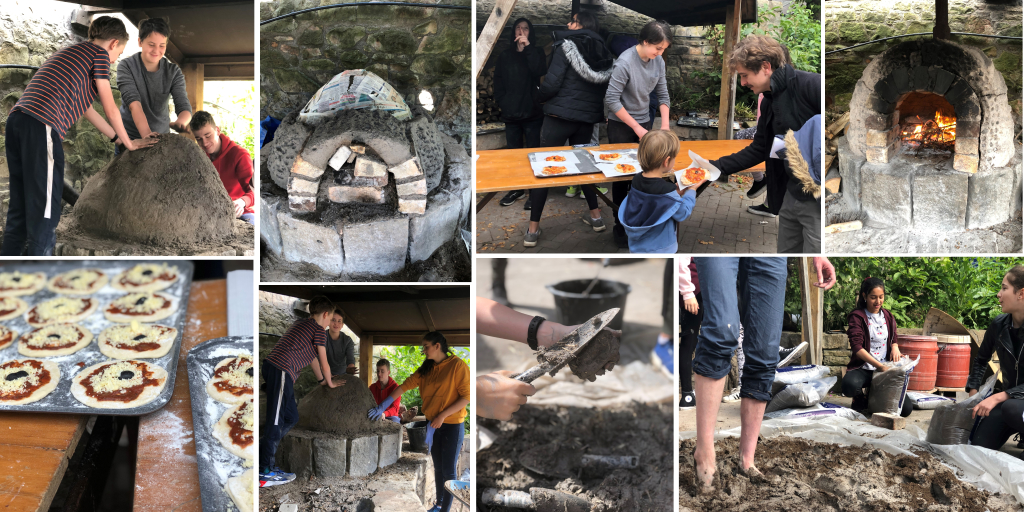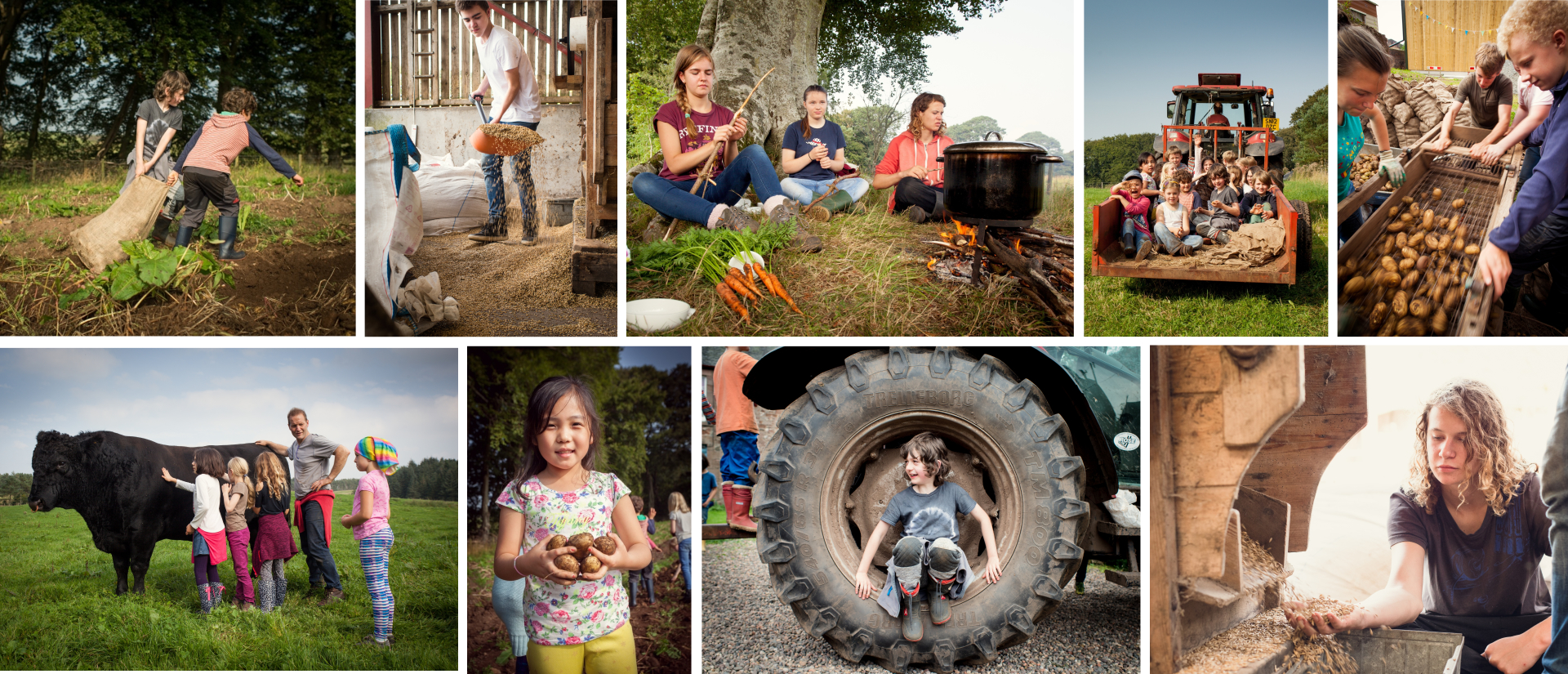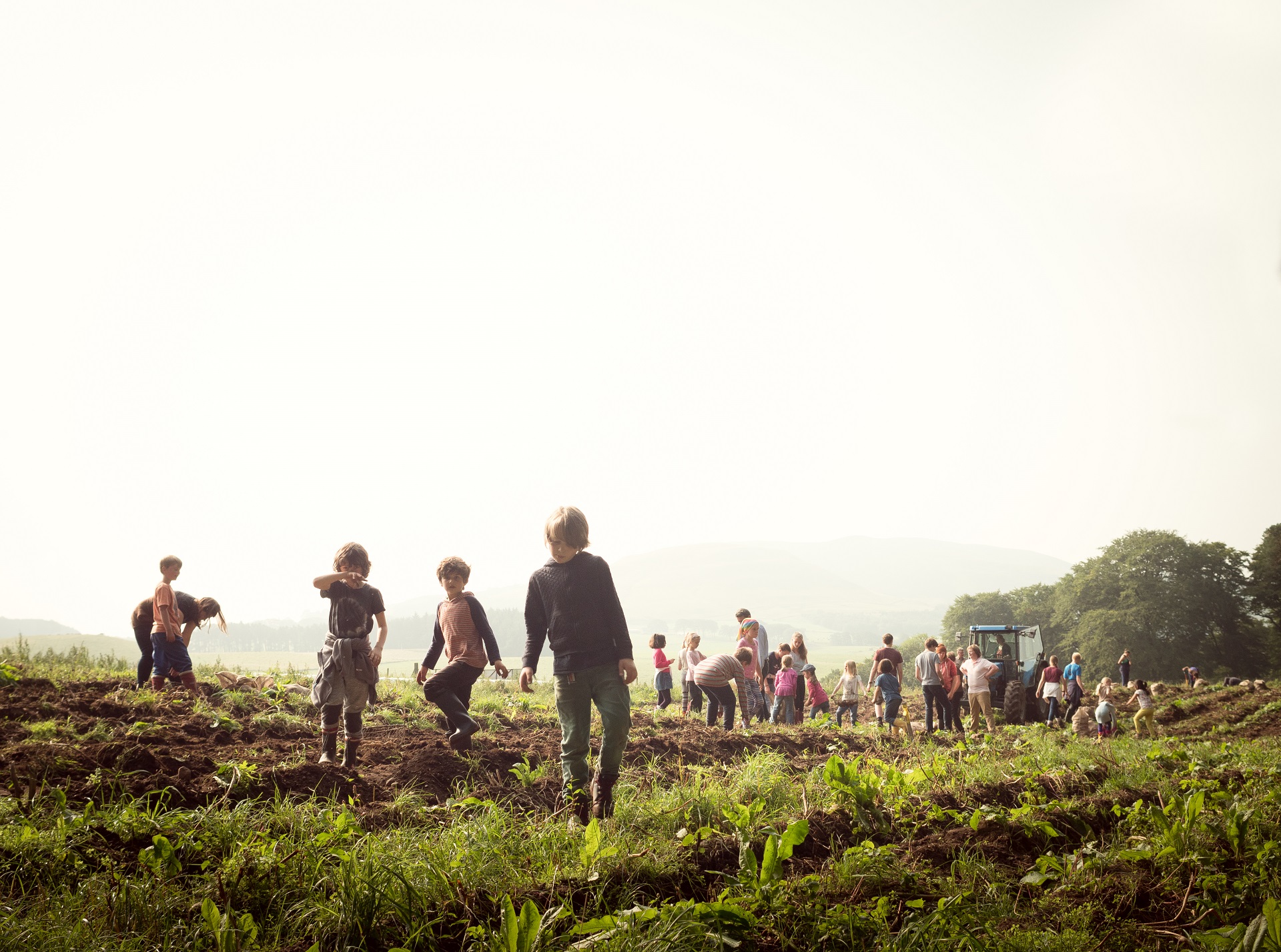From School Plot to Soup Pot
February 18 2020

These gigantic parsnips, grown by Class 6 pupils, Bella and Naya, in their shared veggie plot, along with a selection of winter vegetables from the other 14 campus plots (left), have been harvested today. These were then cooked up by Class 9 pupils for today’s school lunch: winter soup and fresh organic roll, baked just hours before serving.
Learning to bake using organic ingredients starts in our Toddler Group and continues through our Kindergarten, Lower School and Upper School. Gardening is timetabled on the curriculum in the lower school, producing seasonal produce for school lunches, cooked by the older pupils. Agriculture features too in both the younger and older years, experiencing a biodynamic local farm. And as part of the trans-disciplinary approach, outdoor chemistry lessons involve building a clay pizza oven, that is then used to stone-bake organic pizzas, sold by the pupils as a fundraiser for their end of year cultural trip. We are a rare example of a school which emphasises sustainability and the belief in self-reliance.
School Lunches
Uniquely, it is the Upper School pupils at the school who prepare the school meals four days a week. Running the school canteen as a business allows pupils to learn about food provenance, as well as teamwork, marketing, budgeting and organisational skills. Pupil involvement helps to emphasise the importance of sourcing quality, local and organic ingredients and is built into the school’s curriculum.
Pupils receive in-depth training at the start of the year, covering food preparation and handling, hygiene, storage and health and safety. Their profits help to fund a cultural trip at the end of their education.
A daily main course is offered, including seasonal vegetable soup, pasta, stone-baked organic pizza and baked potatoes.

Many former pupils of the School pursue careers in entrepreneurship, which is perhaps stimulated by the hands-on approach to work and fundraising encouraged at school. Irrespective of future pathways, the cooking activities develop good team work, practical thinking and positive people skills which are useful traits in any walk of life.
Gardening
Gardening too is a fundamental part of the curriculum at Edinburgh Steiner School from Kindergarten through to the final year of school; with produce for the pupils’ lunches often sourced from the school gardens.
Bulb planting, seed sowing, looking after the mature gardens and seasonal activities follow once the pupils are of school age. By Class 5, timetabled gardening lessons begin – growing annuals from seed and pupils learn to tend their own plots. The following years they revisit composting, are introduced to landscaping and environmental projects and begin to grow their own vegetables. The older pupils prepare a wholesome school lunch, using ingredients grown in the gardens where possible. (Pupils plant up community garden for dementia residents).
The First Eco Label
Waldorf education’s founder, Rudolf Steiner, also developed biodynamic agriculture. Biodynamics is a holistic, ecological, and ethical approach to farming, gardening, food and nutrition.
A UK farmer of biodynamic food needs a Demeter certificate – a DEFRA approved scheme – with which they commit to farm organically, encourage biodiversity, trade fairy, take a holistic approach, and maintain the highest animal welfare standards. Accreditation not only involves complying with EU organic regulations requiring a two-year conversion period, an additional year of conversion to include using eight mineral and plant-based preparations to activate soil and plant growth on the land is also expected. Half of the feed for the animals living on the farm are required to be grown on the farm; as well as 10% of the farm being set aside for biodiversity, striving for a balance of predator/prey relationships. Emphasising the use of natural life forces, including natural approaches to farming and food production, it follows an ethos of feed thy neighbours, as opposed to aiming to supply a nation.
Licensed in over 60 countries worldwide, biodynamic farming is a method of farming and gardening with a specific holistic and spiritual approach to growing food sustainably. In 2017, the UK’s most famous organic farmer, The Prince of Wales, gave the opening address to that year’s International Biodynamic Agriculture Conference in Switzerland. The Prince spoke about his passion for, and the importance of biodynamic organic farming to restore the health and fertility of our soils.
Rudolf Steiner was one of the first people in the modern era to recognize explicitly the principles of interconnectedness in relation to farming, and to describe the links between the fertility of the soil and the health of plants, animals and people.
(Prince Charles. Watch Full address)
Shadow Farming Minister recently called for organic and biodynamic agriculture to tackle climate crisis. (Read the full article in Parliament’s magazine, The House, here).
Biodynamic farming practice has the highest animal welfare at its heart. Regulated in the UK by the Biodynamic Agriculture Association, Demeter’s biodynamic standards build on EU organic standards.
Biodynamic Produce
The Garvald Bakery (West Linton) is in its 10th year as the focal stall of the School’s Friday Market, setting out its various delights: organic breads, homemade donuts, lemon drizzle cake, vegan bites, warm sweet potato & carrot pasties and more. The haggis for Burns Supper & Ceilidh, hosted annually by the School, has over many years come from Garvald Home Farm; and as they ambitiously develop their facilities over the coming years, they aim to sell biodynamic meat and dairy products at a small shop within the historic steading.
Farming
Each year, as part of Class 3’s Farming Main Lesson, the 8-9-year-olds spend day trips at the local biodynamic farm, Garvald Farm, harvesting vegetables; and cooking lunch over a fire.This is followed by a two-week stay on Garvald Farm in Class 9, milking cows, harvesting crops and experiencing the daily life on a working bio dynamic farm (read Farming in the Curriculum).




